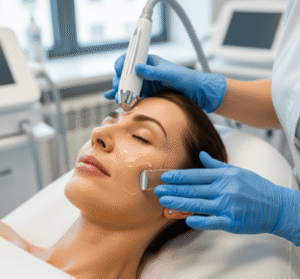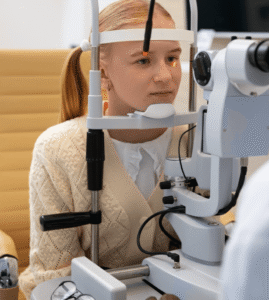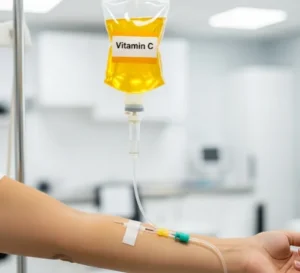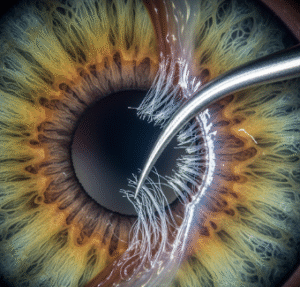Overview
Allergic urticaria, also known as hives, is a skin condition characterized by the sudden appearance of red, itchy, swollen welts or patches on the skin due to an allergic reaction. These hives can vary in size and shape and often appear and disappear quickly, sometimes within hours. Though typically harmless, allergic urticaria can significantly affect quality of life, especially if it becomes chronic or recurs frequently.
What is Allergic Urticaria?
Allergic urticaria occurs when the immune system overreacts to a substance (allergen) by releasing histamines and other chemicals into the bloodstream. This response causes inflammation and swelling in the skin. The condition can be acute (lasting less than 6 weeks) or chronic (lasting longer than 6 weeks).
There are two main types:
- Acute Allergic Urticaria – Often triggered by specific allergens such as foods or medications.
- Chronic Allergic Urticaria – May have no identifiable trigger and can persist for months or years.
Symptoms
- Raised, itchy welts or bumps (hives) on the skin
- Welts that may be red or skin-colored and vary in shape/size
- Swelling (angioedema), especially around the lips, eyes, hands, and feet
- Burning or stinging sensations
- Lesions that change location, shape, and size rapidly
- Flare-ups that last a few hours to a day
- In rare cases: difficulty breathing or swallowing (a sign of a severe allergic reaction)
Causes
Common causes of allergic urticaria include:
- Foods: Shellfish, nuts, eggs, milk, soy, and wheat
- Medications: Antibiotics, aspirin, NSAIDs
- Insect stings or bites
- Pollen, dust mites, pet dander
- Latex or certain chemicals
- Infections: Viral, bacterial, or parasitic
- Physical stimuli: Cold, heat, pressure, sunlight, water
- Emotional stress
Risk Factors
- Family history of allergies
- Existing allergic conditions (asthma, eczema, allergic rhinitis)
- Exposure to known allergens
- Chronic infections or immune disorders
- Environmental pollution or irritants
- High levels of stress
Complications
- Sleep disturbances due to itching
- Skin infections from excessive scratching
- Angioedema affecting the throat or tongue, causing breathing difficulty
- Reduced quality of life
- Mental health issues (anxiety, depression)
- Rare: Anaphylaxis, a life-threatening reaction
Prevention
- Avoid known allergens (foods, drugs, chemicals)
- Keep a symptom diary to identify triggers
- Use hypoallergenic products
- Avoid NSAIDs unless prescribed
- Minimize exposure to extreme weather
- Manage stress through mindfulness or therapy
Treatment Options in Korea
South Korea has advanced treatment options for allergic urticaria, combining modern allergy testing and tailored therapies. You can receive care at renowned medical centers like Severance Hospital, Asan Medical Center, and Samsung Medical Center.
1. Medications
- Antihistamines (e.g., loratadine, cetirizine): First-line treatment
- Corticosteroids (short-term for severe outbreaks)
- Leukotriene receptor antagonists (e.g., montelukast)
- Omalizumab (Xolair): A monoclonal antibody used for chronic idiopathic urticaria
2. Diagnostic Tests
- Skin prick or patch tests
- Blood tests (IgE, CBC)
- Elimination diets for food-related triggers
3. Immunotherapy
- Desensitization for airborne allergens (dust mites, pollen)
4. Complementary Approaches
- Dietary counseling: Nutrition plans to avoid food triggers
- Traditional Korean medicine (Hanbang): Herbal remedies and acupuncture (available at integrative clinics)
5. Patient Education
- Lifestyle changes
- Emergency care plans for severe reactions













